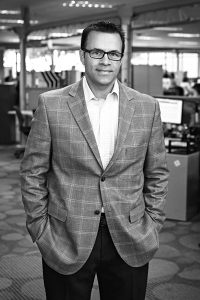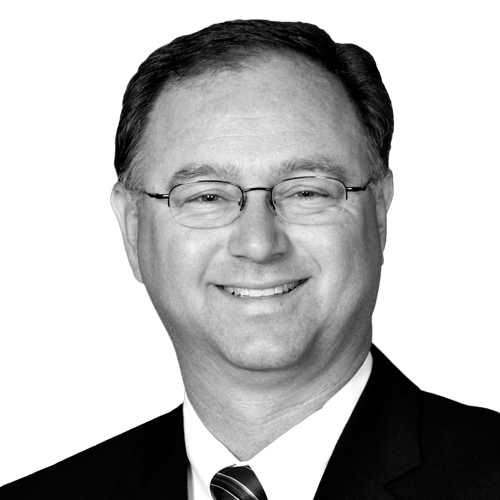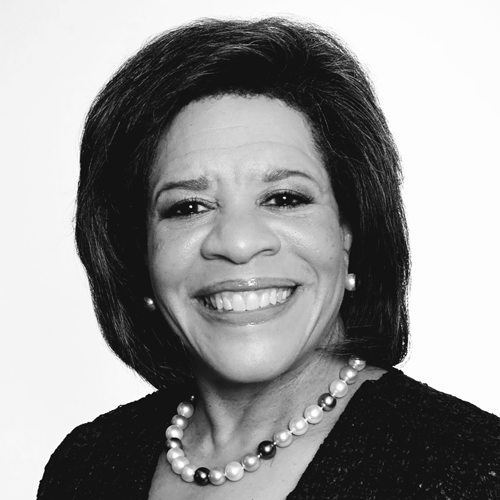
In the mid-1990s, after obtaining his CPA license while working in public accounting at Deloitte & Touche, Sean Whelan was lucky enough to get a job with Ford Motor Company. Like many of the success stories who have gone through the company’s doors, Whelan was placed in Ford’s now-famous rotational program, which places promising individuals in various departments, providing them with well-rounded, hands-on, company-wide experience. It was no different for Whelan, who held eleven different roles during his twelve years with the company.
Whelan’s time at Ford was a formative experience, he says, and it made him a “well-rounded finance person.” He says that without that experience, he wouldn’t have been prepared for the next iteration of his career: healthcare.
Today Whelan is CFO of Diplomat Pharmacy, the largest independent pharmacy in the country, recently recognized as one of the country’s fastest-growing healthcare companies. He was named the company’s first CFO in its thirty-five-year existence, and he observed his fifth year with the company last year as Diplomat celebrated its fortieth anniversary. When Whelan joined in 2010, his presence couldn’t have been more needed: Diplomat had gone from $25 million in revenue to $3 billion in just ten years.
Interestingly, it wasn’t the first time Whelan found himself as the first CFO of a healthcare company. Before joining Diplomat, he was hired as the first CFO of a small healthcare company that had just gone public a week previously.
“I guess I’m just a glutton for punishment,” Whelan says, laughing. “Being the first CFO of a company can be challenging. It’s a bit of a baptism by fire because it’s decidedly harder when you’re starting from scratch. At Diplomat, we just didn’t have the financial infrastructure in place to support the massive growth we were experiencing.”
Whelan says that his entire career has been predicated on change, so making the modifications needed at Diplomat Pharmacy wasn’t as overwhelming a task as it might have been for someone who had a more traditional career path. The “financial infrastructure” that Diplomat needed translated to three key components: people, processes, and systems. And because it’s healthcare, Whelan takes something into account that CFOs outside of his industry don’t have to.
“Being the first CFO of a company can be challenging. It’s a bit of a baptism by fire because it’s decidedly harder when you’re starting from scratch.”
“From top to bottom, the focus is on the patient,” he says. “My goal from the get-go was doing things as efficiently as we can, with as little expense and inconvenience to the patient as possible.”
All of Diplomat’s competitors are much larger companies, but because Diplomat has “worked smart”—competing with existing service models, hiring the right people, and making thoughtful acquisitions—the little Flint, Michigan-based company is thriving. He’d never say it, but part of the success over the last five years can also be attributed to having such a hands-on CFO.
Upon being hired at Diplomat, Whelan decided to spend his first week in operations in order to fully understand the role of employees, their greatest challenges, and, more broadly, to get a better feel for the company and the “specialty pharmacy” industry as a whole.
“It’s easy to get caught up with what your competitors are doing,” he says. “To some degree, it’s good to know what they’re doing, but not to the detriment of your own company. I prefer to look inside our own company to see what we’re doing, what’s working, and what’s not. Personally, I’ve found that to be more effective.”
Given the enormous growth of the company, it seems looking inward is working. And, as Whelan points out, it helps to have an amazing team that you can trust. “You want a team with all of the technical capabilities, but they also just have to be the right fit for your company and its culture,” he says. “I have one of the greatest finance teams. I couldn’t function or do half of what I do without them. They’re the reason I’m able to sleep at night.”
Whelan measures success in a way other CFOs often don’t, even in his industry. He has the usual concerns—pleasing shareholders, turning a profit, and managing growth—but at Diplomat, he says, success is, again, doing the right thing for patients. That’s harder than it sounds. For Whelan, it means that the right patient has the right drug at the right time. Not doing that, he says, not only harms the customer but costs more money.
Going forward, Diplomat Pharmacy is beginning to focus on how to manage total cost of care, a growing concern for many in the healthcare industry. According to Express Scripts Lab 2014 Drug Trend Report, spending on specialty drugs in the US grew 31 percent in 2014, and it’s expected to grow more than 20 percent annually for each of the next three years.
“I want long-term success and sustainability,” Whelan says. “I’m all about making sure that whatever we’re doing today, we’re doing better a year from now—and I can honestly say I think we will be.”


